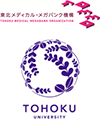November 19, 2014
DOCOMO and ToMMo to Jointly Research Pregnancy Disease Prevention & Early Detection
— Cutting-edge study to combine daily mobile healthcare monitoring with genome analysis —
TOKYO, JAPAN, November 19, 2014 --- NTT DOCOMO, INC., a personalized mobile solutions provider for smarter living, and Tohoku University Tohoku Medical Megabank Organization (ToMMo) announced that they have launched a joint research project today to establish mobile healthcare-enabled methods for the prevention and early detection of medical conditions common during pregnancies, including hypertension syndromes, diabetes and premature deliveries.
Previous studies to determine disease causes have been typically conducted by using data on each person's combination of genomes and changes in biomolecules such as blood proteins, as well as subjective data on environmental factors that is collected infrequently through questionnaires. The new study, however, will be the world's first to integrate genome and biomolecule factors with objective data on environmental factors, including lifestyle, such as weight, diet, sleep and exercise, as well as body conditions such as blood pressure and body temperature of hundreds of pregnant women. They will be monitored daily with handy wearable devices that connect to smartphones to transmit the data to the study center.
The aim is to establish practical methods for preventing and quickly detecting pregnancy-induced diseases typically experienced by about 200,000 pregnant women, or roughly one fifth of all pregnancies in Japan each year.
Diseases are thought to be contracted due to complex interactions between genetic and environmental factors such as lifestyle. As past research into environmental factors has depended mainly on data submitted voluntarily by subjects in once- or twice-annual questionnaires, the data could not include comprehensive factors of daily lives. The study by DOCOMO and ToMMo, however, will involve hundreds of pregnant women who will wear handy monitoring devices to collect data on a daily basis for easy transmission via smartphone to the study center.
The study began at Tohoku University on November 19, 2014 and will last until March 31, 2019. During the current fiscal year ending in March 2015, efforts will focus on the joint study system. From the next fiscal year, the study will look at comprehensive methods for analysis of genetic and environmental factors. New findings regarding measures for prevention or early detection of pregnancy-induced diseases will be announced at academic conferences and in journals.
Combining ToMMo's analytical technologies for genomes and other biomolecules and DOCOMO's mobile healthcare technologies, the joint study could potentially lead to improved healthcare practices during maternity and ultimately safer childbirth deliveries free of common diseases.
About NTT DOCOMO
|
NTT DOCOMO provides innovative, convenient and secure mobile services that enable smarter living for each customer. The company serves over 63 million mobile customers in Japan via advanced wireless networks, including a nationwide 3G network and one of the world's first commercial LTE networks. Leveraging its unique capabilities as a mobile operator, DOCOMO is a leading developer of cutting-edge technologies for NFC mobile payments, mobile GPS, mobile TV, intuitive mobile assistance, environmental monitoring, smart grids and much more. Overseas, the company provides technical and operational expertise to eight mobile operators and other partner companies. NTT DOCOMO is listed on the Tokyo (9437) and New York (DCM) stock exchanges. Please visit https://www.docomo.ne.jp/english/ for more information. |
About TOHOKU UNIVERSITY TOHOKU MEDICAL MEGABANK ORGANIZATION
|
Tohoku Medical Megabank Organization (ToMMo) was established at Tohoku University for the execution of the Tohoku Medical Megabank project, which aims to contribute to resolve the health concerns of residents living in disaster areas affected by the Great East Japan Earthquake, as well as carrying out genome cohort studies incorporating genome information, for the realization of personalized prevention and other next-generation medicine developed in the Tohoku area. Through these initiatives, the project hopes to promote recovery in disaster areas. Please visit |

